detail profile pierre st c3 a9phen

Pierre Stéphen
Pierre Stephen
atau dikenal sebagai
Info Pribadi
Peran Yang Di Mainkan Pierre Stéphen
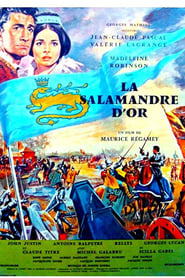 In 1525 on the evening of the...
In 1525 on the evening of the...La salamandre d'or 1962
In 1525, on the evening of the Battle of Pavia, François 1er was taken prisoner by the armies of Charles-Quint, with the Constable de Bourbon on their side. His mother, regent of the kingdom, commissioned the king's loyal equerry, Antoine de Montpezat, to raise a ransom of two million ecus and send it to Madrid. Despite the treachery of Vandoeuvre, governor of Languedoc and supporter of the connétable de Bourbon, who has his eye on the French throne, Montpezat accomplishes his mission and is reunited with his fiancée, who had almost married the traitor Vandoeuvre.
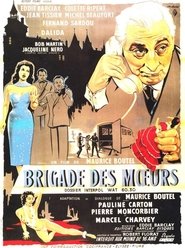 A journalist and a police commissioner...
A journalist and a police commissioner...Vice Squad 1959
A journalist and a police commissioner join forces to smash a white slavery network operating in the Middle East. The cabaret run by Clovis where Dalida sings is quickly spotted, as is a marriage agency run by Madame Irma, offering semblance of guarantees. Clues without proof. The journalist's fiancée agrees to play the game set up by the superintendent. The network is dismantled.
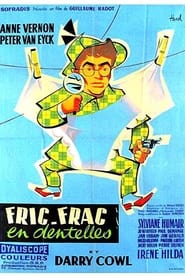 Peter Simon a famous American writer...
Peter Simon a famous American writer...Fric-frac en dentelles 1957
Peter Simon, a famous American writer, deserts his girlfriend Eva to live incognito at a small Normandy inn. Eva shams her own murder for revenge. Meanwhile, a young reporter, Françoise, has tracked Peter down. The news of the crime quickly spreads and, believing Peter to be the murderer, the village is in an uproar. Despite misadventures galore, everything turns out right and Peter takes Françoise on their honeymoon.
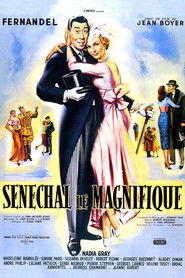 Snchal an actor touring the provinces...
Snchal an actor touring the provinces...Sénéchal the Magnificent 1957
Sénéchal, an actor touring the provinces with the "Tournées Carlini" does not meet the success he thinks he deserves. One night in Dreux, he finds himself without his luggage and dressed up as a Foreign Legion officer, he is invited to a party thrown by a colonel. He creates a sensation there and does not leave the colonel's wife ... indifferent! Back in Paris, Sénéchal goes through a similar experience. This time around, wearing tuxedo and top hat, he gets mistaken for a diplomat and charms the guests of a wedding party. Arrested by the police, he chooses to do without an attorney at his trial and his brilliant eloquence has him acquitted. A question remains unanswered though : will all those people who give an ovation in real life ever go to see him on stage ?
 Pierre Cousin a depressive compositor wants...
Pierre Cousin a depressive compositor wants...Crazy in the Noodle 1957
Pierre Cousin, a depressive compositor, wants to die. After five vain attempts at committing suicide, he decides to hire professional hit men to do the job on him. But as he's waiting for death, he accidentally saves a suicidal young woman's life... and falls in love. Having suddenly found a reason to live, he now fears the killers he himself hired. Is there still time to call off his contract?
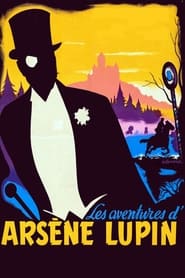 Arsne Lupin is extremely popular among...
Arsne Lupin is extremely popular among...The Adventures of Arsène Lupin 1957
Arsène Lupin is extremely popular among the population, because he allows the needy to share in his acquired wealth. Before entering the service of the German Emperor Wilhelm II, he removes his vault in Alsace, steals two paintings of old masters, steals valuable gems and calls out to the police prefect to avoid his arrest. But this time he risks being seriously recognized. Lupin must once again use his fine intellect to deftly escape the situation.
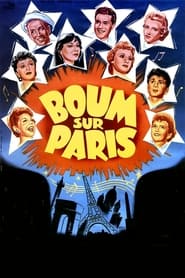 In the early 1950s the popular...
In the early 1950s the popular...Boom on Paris 1954
In the early 1950s, the popular radio show "La Kermesse aux Étoiles", hosted by the famous Jean Nohain, mixing lottery games and performances of various artists, will be disrupted by the adventures of a man and his fiancée seeking to recover a dangerous bottle of perfume (explosive) which was unfortunately mixed with the prizes to be won ...
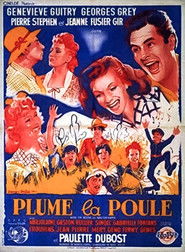 A young student on vacation falls...
A young student on vacation falls...Pluck the Hen 1947
A young student on vacation falls in love with the daughter of his hostess. The father, who has come to put an end to the beginning idyll, falls in love with the young girl's mother, but she refuses to marry him. He will end up, despite his disappointment, giving his consent to his son's marriage.
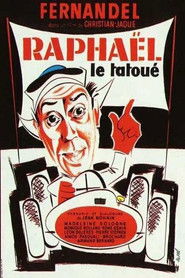 Modeste is a timid watchman at...
Modeste is a timid watchman at...Raphaël le tatoué 1939
Modeste is a timid watchman at an automobile factory which is run with an iron hand by its owner, Roger Drapeau. One evening, Modeste leaves his post to visit a fairground, where he meets the attractive Aline. Having glimpsed his employer, Modeste makes a hasty return to the factory. When Monsieur Drapeau appears, Modeste explains that it must have been his twin brother that his boss saw at the fairground, a nasty piece of work named Raphaël. Not only does Drapeau fail to see through this unconvincing lie, but it gives him an idea to win a marathon car race. Modeste and Raphaël will take alternate turns in the stages of the race and, because they are so similar, no one will be any the wiser. Unable to admit that he has no brother but afraid of losing his job, Modeste allows himself to be coerced into taking part in the race...
 Les Trois Valses traces the love...
Les Trois Valses traces the love...Three Waltzes 1938
"Les Trois Valses" traces the love story of two people over three eras. In the first waltz (music based on Johann Strauss I), Yvonne is a sensitive Parisian ballet dancer, whose romance with a dashing officer is brought to an abrupt end by his family. She goes off to Vienna to become a big star. In the second waltz, her daughter, an even bigger star, but now of Paris music halls, has a brief flirtation with the rakish man-about-town who is the son of suitor number one. She throws him over pretty quickly for a chance to shine at a Gala performance. Finally, in the third waltz, the two get together, when she is a movie star, and he is posing as an insurance salesman.
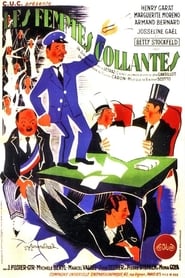 Babinois courts all the women he...
Babinois courts all the women he...Clingy Women 1938
Babinois courts all the women he meets. He has a mistress, Gladys. He would like to marry the Bourillon's daughter, Monique. His maid, Rose, claims to marry him; Héloïse, a young widow, is madly in love with him. Babinois, not knowing how to refuse women anything, promises marriage to all. The fatal day arrives. The four women show up at the town hall in bridal costume and while the other three are doing their buns, Babinois marries Monique.
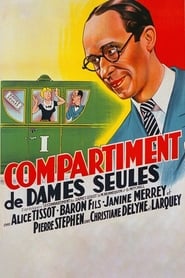 On his wedding day Robert confesses...
On his wedding day Robert confesses...Ladies Only Compartment 1935
On his wedding day, Robert confesses his father-in-law that twenty years ago, he seduced a lady in a sleeping car of a train. His mother-in-law overhears the conversation and convinces Robert that she was that lady and that makes Robert's bride also his daughter. The wedding is in danger of being annulled when the trickery is finally discovered.
 Banker Jules Taffard a true financier...
Banker Jules Taffard a true financier...Ces messieurs de la Santé 1934
Banker Jules Taffard, a true financier, is a shrewd money-handler. Imprisoned for an alleged swindle, his trial seems to be upsetting those in the government, who may not be so far removed from Taffard's affairs (Affaire Alexandre Stavisky). He escapes from La Santé prison without any difficulty, and the authorities don't seem to be doing anything to find him... Under the false name of Gédéon, he becomes a modest handyman in a corset shop run by Madame Génissier, whose morality is as pious as it is legendary. Her son, Hector Génissier, is a foolish young man with no ambition, much to the regret of his young wife, Fernande Génissier. But it won't be long before Gédéon shows his skills in expanding the modest family business. How far can Gédéon's ascent go before Taffard's voice resounds through Gédon?
 In a small French village everything...
In a small French village everything...